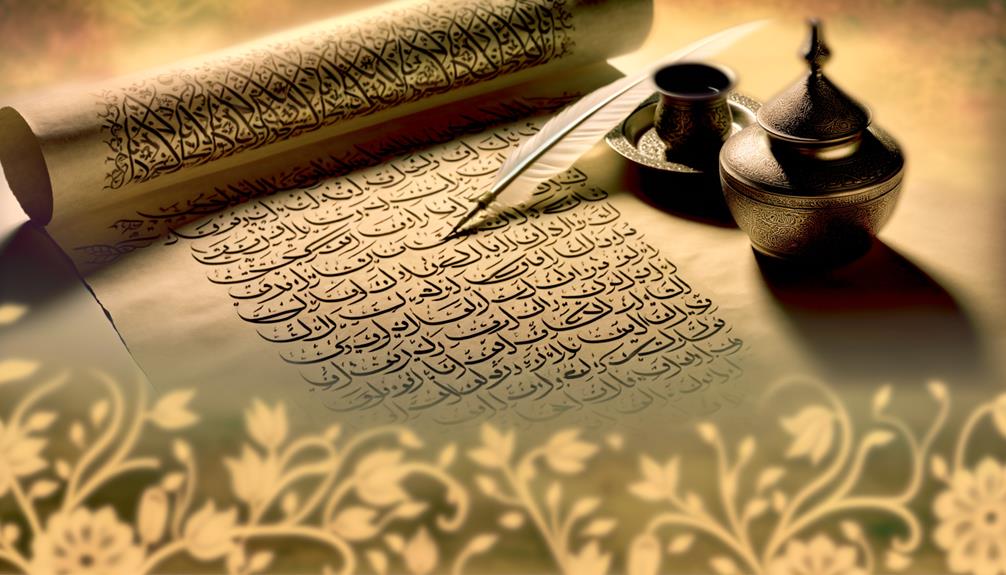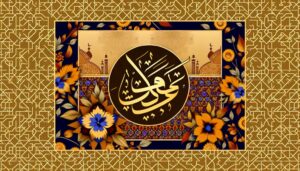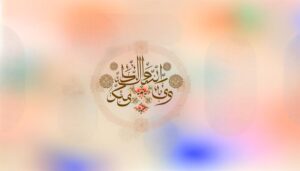Hafsa Name Meaning in Urdu
The name Hafsa, rooted in Arabic heritage, translates to 'young lioness' in Urdu. It symbolizes strength, courage, and resilience.
Historically, it's associated with Hafsa bint Umar, the daughter of Caliph Umar ibn al-Khattab and wife of Prophet Muhammad (PBUH). Hafsa bint Umar was known for her intelligence and played a pivotal role in preserving the Quranic text.
The name carries cultural significance in Muslim communities, reflecting strength, wisdom, and a legacy of faith. If you explore further, you'll discover more about its profound impact and notable namesakes.

Key Takeaways
- Hafsa کا مطلب ہے 'نوجوان شیرنی'۔
- اس نام کا مطلب ہے طاقت اور بہادری۔
- یہ نام استقامت اور استقلال کی علامت ہے۔
- اسلامی تاریخ میں حضرت حفصہ بنت عمر سے منسلک ہے۔
- یہ نام مسلم معاشروں میں حکمت اور تقوی کی نمائندگی کرتا ہے۔
Meaning of Hafsa
Derived from Arabic origins, the name Hafsa means 'young lioness,' symbolizing strength and courage. When you choose the name Hafsa, you're not just picking a name; you're embracing a legacy of resilience and bravery.
This name conveys a sense of vigor and determination, qualities that are universally admired. In Urdu, the name Hafsa retains its powerful connotation, making it a meaningful choice for those who value inner strength.
Understanding the meaning behind Hafsa allows you to appreciate its depth. Names often reflect cultural values and aspirations, and Hafsa is no exception. It's a name that encourages one to face life's challenges with a lioness's heart, embodying both grace and tenacity.
Historical Background
To truly appreciate the name Hafsa, it's important to explore its historical background, revealing the rich tapestry of stories and figures that have borne this name through the ages.
One of the most notable figures is Hafsa bint Umar, the daughter of the second Caliph of Islam, Umar ibn al-Khattab. She was an influential figure, known for her intelligence and strong will.
Hafsa also played a pivotal role in preserving the Quranic text, as her compilation was used in the final standardized version during Caliph Uthman's reign.
Cultural Significance
Reflecting the deep roots of its historical origins, the name Hafsa carries profound cultural significance in many Muslim communities today.
You'll find that naming a child Hafsa is a way to honor the legacy of Hafsa bint Umar, a revered figure in Islamic history.
The name symbolizes strength, wisdom, and piety, embodying qualities that parents hope to see in their daughters.
In many cultures, using the name Hafsa connects individuals to a rich tradition of faith and perseverance. You can observe its widespread use in various regions, reflecting its universal appeal and the respect it commands.
Famous Namesakes
Many prominent figures across history and contemporary times have borne the name Hafsa, further highlighting its enduring significance. You might recognize Hafsa bint Umar, the wife of Prophet Muhammad (PBUH), who played a pivotal role in early Islamic history. In modern times, Hafsa Bekri, a renowned Moroccan poet, has made significant contributions to literature. The name Hafsa is also found in politics, with figures like Hafsa Mossi, a Burundian politician.
| Historical Era | Name |
|---|---|
| Early Islam | Hafsa bint Umar |
| Contemporary | Hafsa Bekri |
| Modern Day | Hafsa Mossi |
| Literature | Hafsa Bekri |
| Politics | Hafsa Mossi |
These namesakes illustrate the name's rich heritage and diverse presence across various fields.
Personality Traits
Individuals named Hafsa often exhibit a blend of strong leadership qualities and a compassionate nature. You might find that they're naturally inclined to take charge, guiding others with confidence and decisiveness. Their leadership isn't just authoritative but also empathetic, making them approachable and understanding.
Hafsa's compassionate side often shines through in their ability to connect deeply with people, offering support and kindness. They possess a unique balance of strength and sensitivity, which allows them to navigate complex social dynamics effectively. This combination makes them not only effective leaders but also cherished friends and confidants.
In essence, if you know someone named Hafsa, you're likely to encounter a person who harmoniously blends assertiveness with genuine care for others.
Popularity in Urdu
In Urdu-speaking cultures, the name Hafsa enjoys considerable popularity, revered for its historical and spiritual significance. It's a name that carries a deep connection to Islamic history, being one of the wives of Prophet Muhammad (PBUH).
This association lends the name a sense of respect and reverence, making it a preferred choice among many Urdu-speaking families. Additionally, Hafsa’s meaning, often interpreted as ‘gathering’ or ‘young lioness,’ adds a layer of strength and importance to the name. For those interested in the meaning behind the name Hafsa, it is often seen as a symbol of power and courage. Many Urdu-speaking families are drawn to this powerful association, and it has become a preferred choice for parents seeking a name that exudes strength and respect. Those curious about the deeper significance of names may want to learn about bareera name meaning, to understand the cultural and historical context behind the names they choose for their children.
Parents are drawn to its combination of historical reverence and contemporary appeal. The name's popularity is further bolstered by its melodious sound and ease of pronunciation, making it a timeless choice in Urdu-speaking communities.
Name Combinations
When choosing a name combination with Hafsa, you'll want to ponder both popular pairing options and unique name blends.
Common pairings like Hafsa Aisha or Hafsa Noor maintain cultural resonance while providing a harmonious balance.
Alternatively, exploring less conventional combinations can result in a distinctive and memorable name.
Popular Pairing Options
Pairing the name Hafsa with other complementary names can create a harmonious and meaningful combination that resonates well in both cultural and familial contexts.
For instance, combining Hafsa with names like Aisha or Fatima can evoke a sense of tradition and respect, as these names are historically significant in Islamic culture.
On the other hand, pairing Hafsa with names like Zara or Layla can offer a modern touch while still maintaining cultural integrity.
You might also consider male pairings for siblings, like Hafsa and Haider, which sound phonetically pleasing together.
Ultimately, the goal is to choose names that not only flow well but also carry significance and depth, reflecting your values and heritage effectively.
Unique Name Blends
Exploring distinctive name blends can enhance the name Hafsa by combining it with other names to create a unique and culturally rich identity. By blending names, you can honor traditions while crafting a one-of-a-kind identity. For example, Hafsa can be paired with names that complement its meaning and sound. Below is a table showcasing some thoughtful name combinations:
| Name Blend | Meaning | Cultural Significance |
|---|---|---|
| Hafsa Mariam | Hafsa (Lioness), Mariam (Beloved) | Combines strength and affection |
| Hafsa Noor | Hafsa (Lioness), Noor (Light) | Symbolizes courage and illumination |
| Hafsa Ayesha | Hafsa (Lioness), Ayesha (Living, Life) | Represents vitality and resilience |
These combinations provide a well-rounded, meaningful identity for the name Hafsa.
Conclusion
To sum up, the name Hafsa holds a treasure trove of cultural significance and historical richness. You've learned about its profound meaning in Urdu, its notable namesakes, and how it shapes personality traits.
With its timeless appeal, Hafsa isn't just a name; it's a legacy. As you consider name combinations, remember, choosing Hafsa is like selecting the crown jewel of names—an unparalleled choice that resonates deeply within Urdu-speaking communities.






